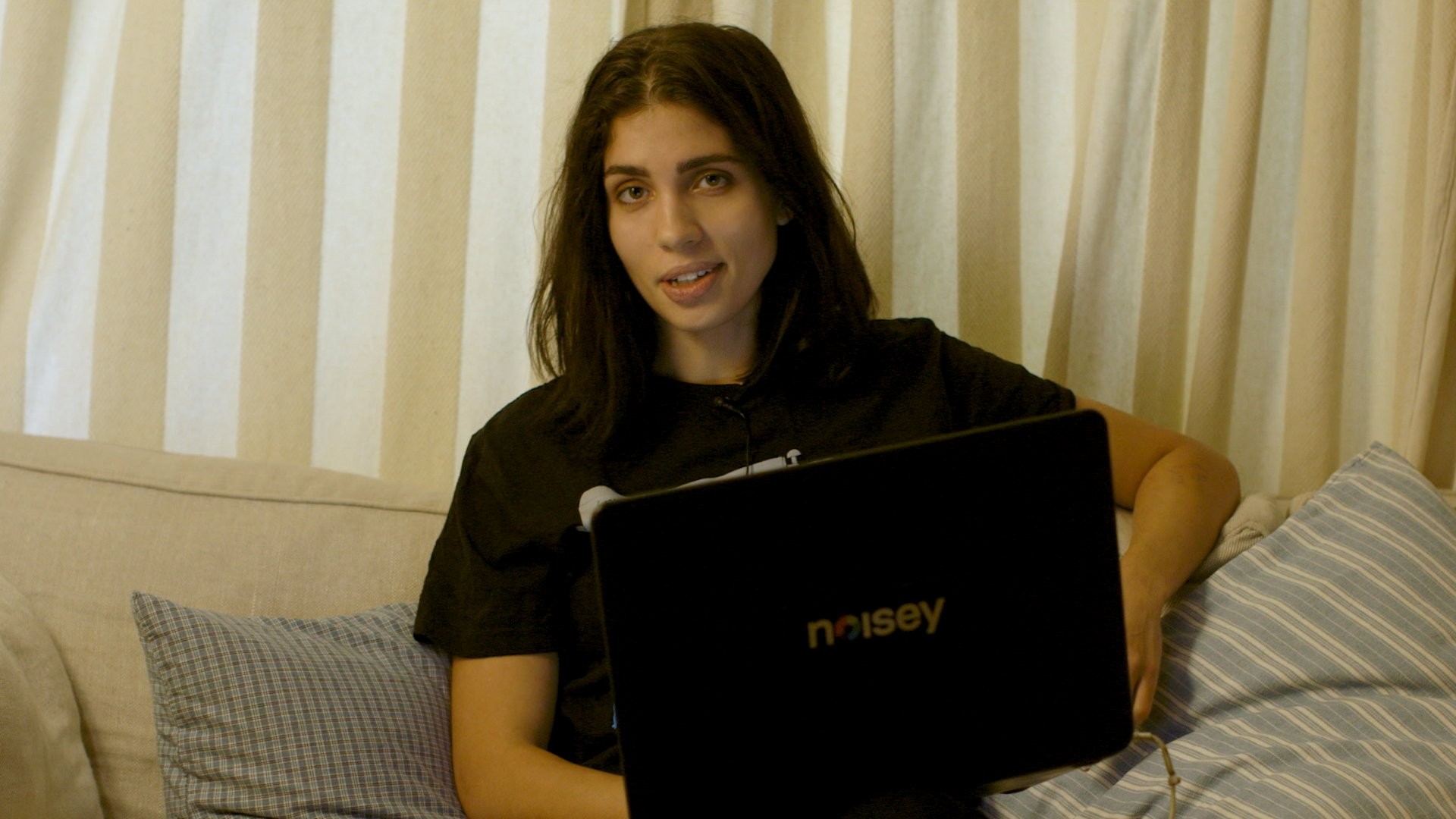L: Genny and Marina at Screamers Party Hollywood Hills with Billy Zoom (of the punk band X) and Top Jimmy, 1977. R: Holly Vincent backstage at Mabuhay Gardens in San Francisco for a Backstage Pass show with Mumps, June 1977.
L: Tommy Gear (The Screamers) and Genny at Bomp Records (The Damned Instore), April 16, 1977. R: Joey Ramone, Genny, Arturo Vega Backstage at The Whisky, February 1977
Marina Muhlfriedel: I moved from London to LA a couple of years before the punk scene opened up. In late 1975, Kim Fowley invited me to see his new band, the Runaways. I went over to the Whiskey to see them and I was really appalled. I thought they could play their instruments, but there was this “Cherry Bomb” bullshit going on—the way men want you to act. I didn’t believe in them as women. I didn’t think that was their creative instinct and I found Kim’s control objectionable. I went over to the Rainbow, sat with my girlfriends, and decided right there and then, “Let’s start a band!”
L: Backstage Pass at the Masque, 1977, photos by Donna Santisi. R: Backstage Pass at the Starwood in West Hollywood, 1977
Muhlfriedel: A guy named Con Merten worked at Cherokee Studios said we could use the small recording studio upstairs for free. The weird thing was, downstairs Alice Cooper and David Bowie were both recording. Our rehearsal space had a one-way mirror so they would come up and watch us try to figure out our instruments and write songs. At the time, none of us had been in real bands, and people from other bands would come and hang out at our rehearsals to help us, listen, and suggest stuff. It was kind of crazy, almost like a lab experiment. After we’d practice, we’d go out and chase rock stars—that was a big part of our lives.Schorr: It was the end of the big rock n’ roll and glam period with Pete Townsend, Led Zeppelin, and the Kinks. I’d go and get my picture taken with Tom Petty and say that we were going to go on tour with them (laughs). I was the goofiest because I was the youngest. The girls were always rolling their eyes at me. The first thing that I saw that was so punk was Jake Riviera, who became the road manager for Dr. Feelgood, kicking this rental car. I had never seen anything like that. There was a lot of backlash from the older, "dinosaur" rock scene.

How did the scene at the Masque take shape?
Muhlfriedel: We found the Masque because we needed a space to rehearse. A girl I didn’t know told me about a guy renting space. I went over to this dump, a porn theater in Hollywood, and I met this Scottish guy named Brendan Mullen. He wanted to be at the epicenter of an artistic scene. My feeling was he wanted to create something more like Andy Warhol’s Factory than what it actually became.I explained to him that we needed a rehearsal space, and while he hemmed and hawed, Chas Gray, Holly Beth Vincent, and I went ahead and built a room with a door and a lock so we could start practicing. We signed the lease and gave him $150 a month. Backstage Pass, the Skulls, and the Controllers moved in, then other bands followed. The first shows started after someone broke into our rehearsal space, took our PA system, and set it up on the corner of the stage.
Che’ Zuro and Genny Schorr, Griffith Park Observatory, UFO Obsession Show, July 1978
Muhlfriedel: There were kids coming from the Valley, the South Bay, and the East side. It was a convergence of kids who wanted to be a part of something new. When you went downstairs, it felt like a secret clubhouse. Then it rolled over to a couple of nearby apartment buildings and it became a scene.
Genny and Brian James at Bomp Records
Schorr: I didn’t like being told what to do or what not to do. I was like, “I’m going to play electric guitar,” even though it was mostly men. I was driven to do it and it made me feel empowered.Muhlfriedel: I felt inspired by artists and writers like Judy Chicago, Yoko Ono, Anais Nin, and Marina Abramovic. I feel like they were punk in their own way. It was important to me to be a woman who could express herself fearlessly. There was a consciousness of opening the door for other women. You live by example. If you have the balls as a woman to do something that people normally tell you that you shouldn’t, you allow other people to do it and take it another step. Knowing I had the nerve to start a band without knowing what I was doing made me feel powerful. It was premeditated then and it is now.
Marina with Chas Gray of Wall of Voodoo, backstage at the Whisky a Go Go
Muhlfriedel: Once you commit to not being constrained by male rules, you don’t have to fight anymore. You can be sexy or you can be a bitch and you don’t have to worry about anyone judging your behavior. I remember Genny dive bombing off a stage at the Mabuhay and starting a fight.You have to declare yourself no matter what you do, then you step out and you do it. Typically you get much less resistance than if you ask for permission. Maybe that’s the punkness of being female: don’t ask for permission, don’t seek male approval, just do it for yourself. Have the courage to continue and don’t let anyone put limits on you.Sign up for our newsletter to get the best of VICE delivered to your inbox daily.Follow Miss Rosen on Instagram.